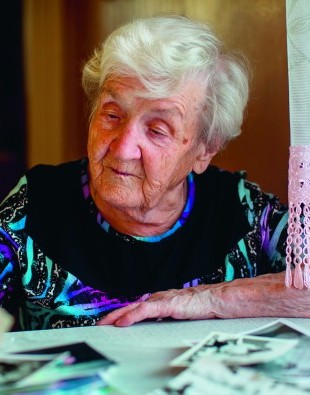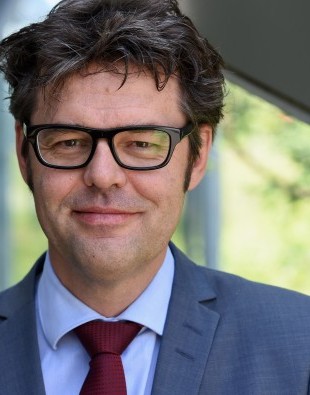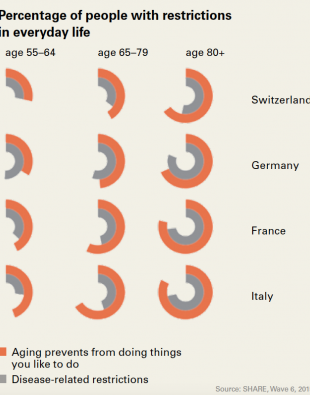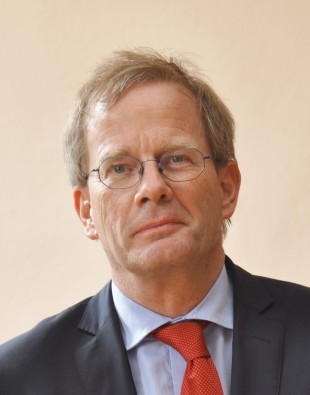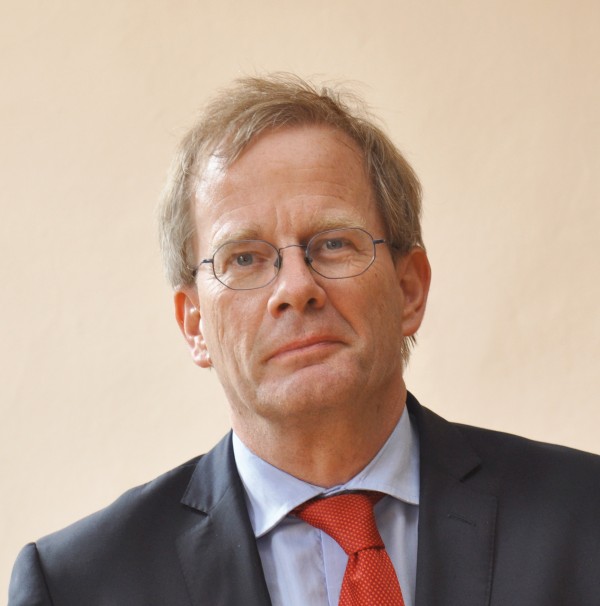
“The generations can inspire each other to an enormous degree”
May. 2019Healthy ageing
Interview. Andreas Kruse, an expert in the field of gerontology, talks about the opportunities presented by a cross-generational exchange, the importance of learning and education in old age and the need to invest in health as early in life as possible.
Mr Kruse, the Swiss population is ageing. What do you feel are the greatest chal-lenges facing society as a result of this development?
The first challenge is to find better ways of identifying the strengths and resources of advanced age in the workplace and civil society and of making greater use of them. One of the key concepts here is active citizenship. How, for example, should continuing education and prevention opportunities be designed in order to preserve these strengths and resources? How can relationships between the generations be encouraged? This last question is key because it targets the cross-generational exchange that is such an important factor in creativity and productivity.
Here it is also important to differentiate our images of advanced age, and this raises another challenge. To what extent do we acknowledge the strengths and resources of advanced age in society, culture and politics? To what extent are they appreciated and used in a collective sense? And finally, it is import-ant for elderly people to be appreciated and supported in the way they cope with vulnerability. In order for this to happen we first have to understand vulnerability as a feature of human existence.
One of your key areas of research is the exchange between the generations. Why are you so passionate about this subject?
The generations can inspire each other to an enormous degree. Such relationships create a foundation for solidarity within our society. By inspiring each other, each generation creates a significant context within which the other generation can develop. This applies to emotional and social development in the same way as to intellectual, spiritual and religious development.
From the perspective of age research it is important to me that generativity – in the sense of caring for other people – and symbolic immortality – in the sense of living on in subsequent generations – are significant concepts in the way many elderly people perceive life. We need to embrace these concepts much more actively than is currently the case.
How important do you feel it is for elderly people to participate in community life?
Our society benefits from the knowledge and reflected experience of older people. Participation is also a central factor that influences quality of life, emotional state and social and intellectual development at an advanced age too.
Learning and education in old age are widely propagated nowadays. How important are they for the elderly?
Learning and education cannot be estimated highly enough in terms of their contribution to participation and intellectual and emotional development in old age. They also play a major role in preserving health.
The retirement age is a recurring topic of intensive discussion in Switzerland. Where do you stand in this discussion?
If older employees are interested in working for longer, and if their interest tallies with the company’s objectives, then an opportunity should be provided for them to do so. In the longer term it will presumably be impossible to avoid raising the statutory retirement age. But some important conditions need to be in place first. Firstly, continuing education opportunities – both within and outside companies – that span the individual’s entire period of employment. Secondly, provision for employees to have a say in the type and volume of work that they do. If these conditions are not in place, any attempt to implement statutory regulations will meet with resistance.
Germany has defined a “national health objective of ageing healthily” and has developed a corresponding strategy. What can Switzerland learn from this? Has the approach been successful?
This strategy must be considered significant for four reasons. Firstly, it brings together people from a number of disciplines – and this means that different points of access to health and different methods of preserving health, autonomy and participation are represented. An approach of this kind is vital in achieving a comprehensive understanding of health.
Secondly, the focus is not on why a person became ill (pathogenesis) but on how that person can be restored to health (salutogenesis). In other words, what can be done to create health and restore it once diseases have developed – with respect to the individual and also to the circumstances in which that individual is living?
Thirdly, an attempt is being made to agree on central health objectives and to define them, with these health objectives informing both public health policy and health insurance providers.
And the fourth reason: the health objectives demonstrate that health can be “shaped” in all phases of life. Or, in other words, that the individual – but also the community, health insurance providers and the state – can do a great deal to preserve and restore health in all phases of life.
Age is not a defined stage of life but a continuous process. What can the individual do in order to age healthily? And what must society do to en-able people to age healthily? In this context we are particularly interested in the areas of health promotion and prevention.
It’s important to start investing in education and health at an early age, and that also means promoting good health and preventing poor health. In addition, health promotion and prevention also need to be understood as a lifelong task. Because many diseases and functional impairments experienced by the elderly are progressive diseases and impairments; some of them begin in adolescence or in early adulthood or midlife. Education – which always includes health education – and health promotion and prevention can help to avoid individual diseases and impairments developing in the first place. Moreover, by adopting appropriate strategies we can help to strengthen the individual’s resistance to disease.
All activities to promote health must focus at the same time on the individual’s mental health. The aim is to invest from an early age in maintaining the individual’s mental well-being and ability to cope with conflicts and stress factors in a mature way.
You researched images of ageing in Germany as part of the sixth report on ageing, among other things. From your point of view, what are the major findings?
Age is often interpreted in a very one-sided manner, as a process of decline or increasing physical, mental and intellectual loss. Far too little attention is paid both collectively and individually to the strengths and resources, the potential for development and change, inherent in the ageing process.
There is also no real acknowledgement of the contribution that the elderly make to human capital, to society, the economy and cultural life. One of the major objectives of all the reports on ageing was and is to contribute to a much more differentiated view of ageing and old age.
Inwiefern sind vorherrschende Altersbilder für ältere Menschen relevant? Welche Auswirkungen haben sie auf die Selbstwirksamkeit älterer Menschen sowie auf deren Gesundheit generell?
Altersbilder sind wirkmächtige Vorstellungen auch über das eigene Alter, das heisst auch über das Ausmass, in dem das eigene Alter als gestaltbar angesehen wird. Daraus folgt, dass Altersbilder mit darüber entscheiden, was Menschen für ihre Kompetenz und Gesundheit tun, inwieweit sie sich dafür engagieren, zu einem persönlich zufriedenstellenden und erfüllenden Alter beizutragen.
Gibt es ein Anliegen, welches Ihnen besonders wichtig ist?
Mir geht es sehr darum, das hohe Alter immer als eine Verbindung von Verletzlichkeit und Reife zu betrachten und dabei deutlich zu machen, dass körperliches Altern etwas anderes ist als seelisches und geistiges, als existenzielles und spirituelles Altern. Gerade mit Blick auf die seelische und die geistige, aber eben auch die existenzielle und die spirituelle Situation können wir im hohen Alter eindrucksvolle Entwicklungsprozesse beobachten, die gesellschaftlich, aber auch kulturell sehr viel stärker beachtet und gewürdigt werden müssen.
Zudem ist mir wichtig, dass wir mit Blick auf das hohe Alter die Möglichkeiten der Rehabilitation sehr viel stärker ausschöpfen, als wir dies bislang tun. Wenn ich hier von Rehabilitation spreche, dann meine ich damit zum einen die Verbindung von Therapie und Rehabilitation, zum anderen die deutliche Stärkung der Rehabilitation in der Pflege und schliesslich den Ausbau psychologischer und psychotherapeutischer Hilfen für alte Menschen in gesundheitlichen, seelischen und sozialen Grenzsituationen.
Mit Blick auf das höhere Alter, siebtes, achtes Lebensjahrzehnt, ist mir die Schaffung von Gelegenheitsstrukturen wichtig, die uns die Potenziale des Alters für die Gesellschaft viel stärker vor Augen führen, sowie die Förderung des intergenerationellen Austauschs.
Our interviewee:
Professor Andreas Kruse is Director of the Institute of Gerontology at Heidelberg University. He studied psychology and subsequently engaged in research, predominantly at the universities in Heidelberg and Greifswald. His interest in gerontology was aroused by Ursula Lehr, a scientist working on ageing and CDU Minister for Families, who founded the Institute of Gerontology in Heidelberg in 1986 and hired him as her first employee.

